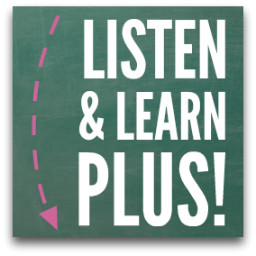
Summer is usually a pretty laid-back time at my private practice, Music Therapy Connections. However, summer 2019 is a MAJOR exception to this rule, as it has been quite the whirlwind so far.
At the end of May, we welcomed a new music therapy intern, Emma, and then just a couple weeks later, we welcomed a new full-time music therapist, Molly. Then, one week after that, our long-time music therapist, Alisabeth, left us to have her baby.
So as you can imagine, there has been an overload of new client intake, new contracts beginning, and current clients being reassigned to different music therapists. Thankfully, we are at tail end of this shuffle, and now the real work begins.
Establishing goals in music therapy is an intricate process, and it’s different from setting to setting and from one individual to another. My therapists work in schools, mental health centers, senior living facilities, hospitals, and also see clients in our clinic, so we’ve had many conversations regarding setting and reassessing goals in each area.
But the common theme has been this: when an existing goal no longer makes sense or is not applicable, it’s time for a change.
One of the big advantages of having new therapists assigned to existing groups and clients is that they bring with them a new perspective. Yesterday during supervision, each of our therapists brought up scenarios with clients in which the established goals no longer seemed appropriate, and laid out their reasoning.
Not only that, but they were able to pinpoint which goals would be much more appropriate for the time being, and that still keep those clients on the path toward meeting the original (and much bigger) goals in the future.
Continuing to work on goals that no longer make sense is only going to cause frustration for both the therapist and the client. Continuing to do things the way another therapist was doing them, but does not seem to be working in the present, is not effective.
If you find yourself in this situation, use your knowledge and expertise to reassess the client or group and establish goals that are appropriate and attainable. Get input from other professionals who work with those individuals, and/or their families, so that you’re all on the same page.
Sometimes that looks like creating 12 smaller goals between where the client currently is and that original, seemingly unattainable goal. Working towards more realistic milestones not only increases a client’s motivation as he/she makes progress, but it also relieves the pressure that YOU as the music therapist may have been feeling when you felt stuck before.
Remember: goals are DYNAMIC. This is true for you personally, so why shouldn’t it be true for your clients? I have made some giant pivots from my original goals for 2019 — either scrapping them altogether, or adjusting them to better fit my current life situation.
You can do the same in your music therapy sessions, as long as all parties are on board and you are working in the best interest of your clients. Even those of us who have been at this for many years need such a reminder from time to time, myself included :)







